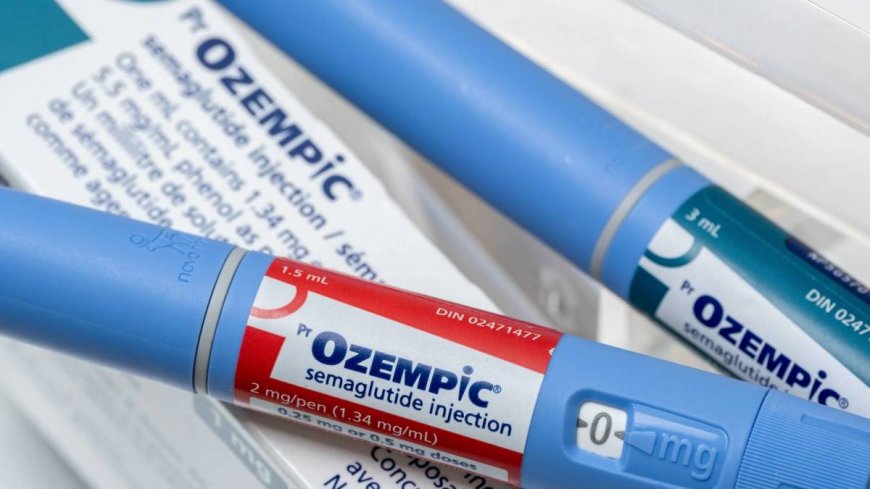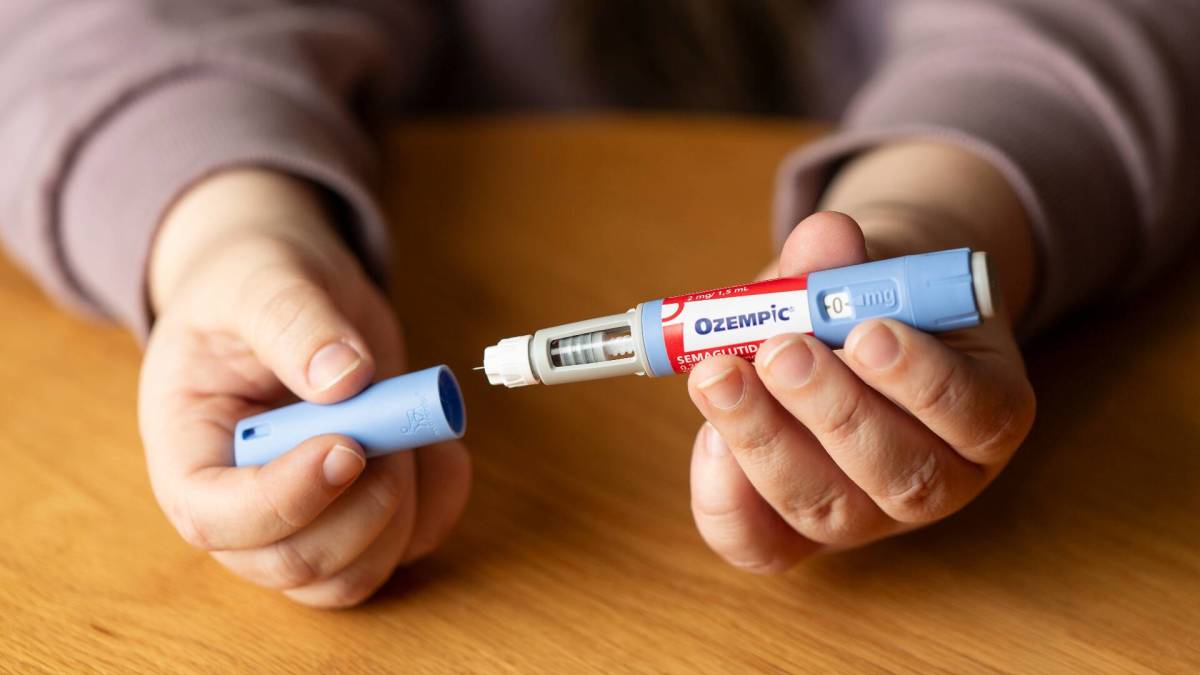Another Ozempic user explains weight-loss drugs' growing popularity
As weight-loss drugs such as Novo Nordisk's Ozempic become more accessible, people are sharing their experiences.

Many people trying to live more healthy lives begin with efforts to lose weight that include eating well and exercising more.
But with increasing frequency, another weapon in the battle to shed pounds is being wielded in the ongoing struggle: weight-loss drugs.
Related: Shark Tank's Mark Cuban has words on weight-loss drugs
Pharmaceutical companies such as Eli Lilly (LLY) and Novo Nordisk (NVO) manufacture type 2 diabetes medications that have been found to cause patients to lose weight.
Eli Lilly's diabetes drug is Mounjaro, while Novo Nordisk manufactures Ozempic for diabetes. Both companies also make drugs approved by the U.S. Food and Drug Administration (FDA) for weight loss specifically. Eli Lilly's is Zepbound, while Novo Nordisk makes Wegovy for weight loss.
These medications are GLP-1 receptor agonists, which slow the movement of food from the stomach into the small intestine, leading to patients eating less because they feel full faster and for longer periods of time. The medications are available as injections.
Other medications exist as well, including Currax's Contrave, which is taken orally and functions differently in that it suppresses the desire to eat in the brain rather than in the stomach.
As weight-loss drugs grow in popularity, more patients are sharing their experiences with them.
Recently, TheStreet sat down with Vinnie Painter, 56, a physical therapist near Seattle, who explained her weight-loss efforts during the past few months using Ozempic.
Why one patient decided to try weight-loss medications
Painter first discussed a few of the reasons she began to explore using medicines for weight loss in her pursuit of better health.
"I had done everything else possible to try to lose weight. I don't eat much. I exercise a lot. I watch what I eat. And nothing was happening," Painter said. "I am postmenopausal. I just started estrogen hormones, and that wasn't helping. And then you hear so much about Ozempic and you see all the people and all the stars getting skinny, and then I started getting jealous. But they have access to it."
"I work on the neuro stroke service at the hospital as a physical therapist. There was a plethora of women my age having strokes. Some of them were the same weight as me," she said. "But I had fatty liver. I had high cholesterol. And it was an eye-opening experience of, if I don't do something soon, I am going to be one of these people that had a stroke."
More on weight-loss drugs:
- Mark Cuban has compelling words about Ozempic and Cost Plus Drugs
- Ozempic, weight-loss drugs rise and the fitness industry reacts
- How weight-loss drugs have forced a change of focus on health
Painter explained that her job as a physical therapist gives her insight into people's health issues about which others might not be so acutely aware.
"There are a lot of things a lot of people don't see. I see so many women my age having huge health issues, most mainly because of weight," she said. "And genetically, I have high blood pressure."
"So I knew I had to do something." Shutterstock
How the physical therapist was able to access and afford Ozempic
Painter felt her health insurance would not cover a weight-loss medication because she was not severely overweight.
"I needed to lose about 25 to 35 pounds and that's not enough to go on insurance," she said. "So I started doing some Google searches and I found Henry Meds, which I did a lot of research on, looked at reviews and made sure it was not just a fly-by-night type thing. The reviews were all good and it was $300 a month for the injectable, and they had Ozempic."
Painter explained that the injections were once per week. After a couple weeks and the prescribed increase in dosage, she noticed she was not feeling hungry and she experienced some weight loss.
"My desire for food kind of disappeared, and then the craving for sweets," she said. "And the one that blew my mind is that alcohol didn't taste good anymore. Okay, I like my wine, but I've been trying to cut back significantly on alcohol because it's not good for you. But I didn't want it and it just didn't taste good anymore, which was really nice. I'd go for happy hour and just order soda water. I didn't crave the carbs. I would be eating more protein."
"I would say within the first three months I lost maybe 15 pounds," Painter added. "Which for me is a lot because I can't lose weight, right? I checked it every couple of days and then it slowed down, and I lost maybe 10 pounds over the next five months. And then I just stopped losing weight."
Related: Ozempic success story: 'Weight-loss drugs, costs and my health'
Painter said the positive effects of Ozempic were also accompanied by some unpleasant side effects.
"I was very nauseous and I started getting constipated," she said. "So those were side effects, as well as heartburn. I was really tired and I didn't have a lot of energy. That's probably from not eating enough calories. I was eating maybe 700 calories a day."
In the future, Painter said she would like to take the habits she learned from using Ozempic and apply them to her life without having to use the drug.
"I would love to say I'm not going to go back on it, but I think I may," she said. "I'll see what happens at the end of the summer and see where I am. I think I've learned some good habits. I think I'd like to lose 10 more pounds, but I'm healthy at the weight I'm at."
"At 56, I don't expect to be the same weight as I was at 30, right? But I do know, health-wise, I need to be at this weight or lower."
Related: Veteran fund manager picks favorite stocks for 2024
Contact Jeffrey Quiggle about your own personal stories with weight-loss drugs via email at [email protected].
The author of this story owns shares of Novo Nordisk and Eli Lilly.
What's Your Reaction?



























































